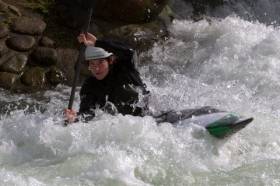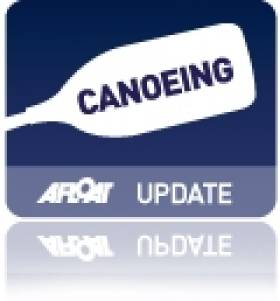Displaying items by tag: Krakow
#Canoeing: Noel Hendrick put in a solid performance in the men’s K1 semi-final at the canoe slalom World Under-23 Championships in Krakow, Poland, this morning. He had no touches, but his time of 91.46 seconds left him outside the top 10 who went through to the final. He finished 22nd.
Eoin Teague was off the pace in his run and was then thrown completely out of the reckoning at the finish when he misjudged gate 20 and was given a 50-second penalty.
Canoe Slalom World Under-23 Championships, Krakow (Irish interest)
K1 Semi-Final: 22 N Hendrick 91.46 seconds; 36 E Teague 144.24
Middle Section Costs Jegou in Canoe Slalom World Final
#Canoeing: Ireland's Liam Jegou finished ninth in the Under-23 C1 at the canoe slalom World Championships this morning. The 20-year-old went off second last in the final in Krakow in Poland and set a time of 94.62 seconds. He lost time in the middle section of the course, touching gate 14 and so incurring a two-second penalty. Florian Breuer of Germany had set a time of 87.88 early in the final and it was not matched. He took gold; Lukas Rohan of the Czech Republic silver and Russia's Kirill Setkin bronze.
Canoe Slalom World Championships (Irish interest)
Men
Under-23 C1 Final: 1 Germany (F Breuer) 87.88, 2 Czech Republic (L Rohan) 89.06, 3 Russia (K Setkin) 90.43; 9 Ireland (L Jegou) 94.62.
Craig Comes Close in Canoe Slalom Championships
# EURO CANOE SLALOM: Hannah Craig finished 17th of the 40 competitors in the women’s K1 at the European Canoe Slalom Championships in Krakow in Poland today. The Ireland Olympian clocked 99.82 seconds in the heat, which put her just 1.01 seconds behind the 10th place finisher who secured a slot in the final. Aisling Conlan was given three 50-second penalties and finished 40th.
Canoe Slalom European Championships, Krakow, Poland, Day Two (Irish interest)
Women – K1 Heat (First 10 to Final): 1 Britain (F Pennie) 92.01; 17 H Craig 99.82; 40 A Conlan 274.24 (122.24 plus 152 sec penalties).






























































